What's So Funny About Peace Love and Mediocrity?
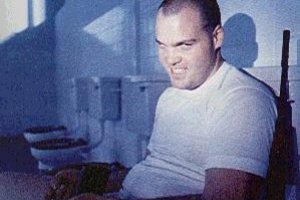 However, unqualified is probably best for this film, because when I say I didn't need to employ any of my usual techniques to get through the movie, it pretty much clues you it to just how lame it is.
However, unqualified is probably best for this film, because when I say I didn't need to employ any of my usual techniques to get through the movie, it pretty much clues you it to just how lame it is.That said...
I saw a free test screening of this movie, which means I waited in line with my friend out in the New York January for a good long time (about an hour), bonding with the couple in front of us about how men are too often goofy-sarcastic with the women in their lives (with the argument going that this is how we relate to other men, and sometimes we just forget). In addition to talking gender politics, this particular couple told us how they went to test screening about once or twice a week. Now, I set a good movie pace, but that's a whole lot of movie going. And then they talked about the movies they actually saw, such as the devilish dilemma of whether to see Big Momma's House 2 versus Underworld: Evolution.
This is my vision of Hell by the way.

We wound up sitting in front of the couple during the movie. After the movie, as the tracking passed out the surveys and the pencils, and all I could hear was the couple saying the movie sucked, it was the worst movie ever, it was an absolute disaster.
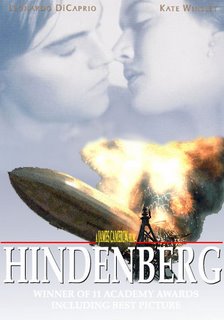 Although I have no real interest in defending the artistic merit of Pulse vs. Big Momma's House 2 or Underworld: Evolution, mostly because that would involve me seeing the other movies, I have the strong feeling Pulse was not the worst movie I have ever seen. It really didn't achieve enough to suck for me, at least compared to these movies.
Although I have no real interest in defending the artistic merit of Pulse vs. Big Momma's House 2 or Underworld: Evolution, mostly because that would involve me seeing the other movies, I have the strong feeling Pulse was not the worst movie I have ever seen. It really didn't achieve enough to suck for me, at least compared to these movies.It makes me wonder, because it seems increasingly that movies are not allowed to be average. Perhaps I'm more sensitive to this after what seemed like a fairly average year at the movies, when with rare exception
I found most of the films to be a little more or a little less than what I expected, but none to be truly great or truly gawdawful. Even Roll Bounce underachieved (mostly by being sort of good).
But when I went reading movie blogs this year, the level of discourse had to be Crash sucked/was the best movie ever; BBM was overrated/the best thing since sheep; Good Night and Good Luck was a clarion call for our times/overwrought propaganda that obfuscates the facts of the McCarthy era almost as badly as McCarthy did. And so on and so forth. When in fact, Crash was just the same good-for -you, socially conscious stuff that Hollywood generates every now and then(cf., Gentleman's Agreement, Guess Who's Coming to Dinner, Philadelphia) with a splash of underdone P. T. Anderson; BBM was simply a very good Hollywood romance in the vein of Love Affair and English Patient, only with two dudes; and Good Night and Good Luck, well, I'll get back to you on that one.
Obviously diagnosing the culture off blog postings is deceptive, because the easiest way to have a discussion is to motivate it with emotionally overwrought, provocative statements. And maybe people really believe what they're saying/typing. But maybe after you pay $11 (not counting concessions, babysitters, etc.), or wait in the cold for an hour, you need to feel something. Maybe that's why we go to the movies in the first place. And maybe when you don't feel much of anything, well you need to get charged up in the opposite direction. And perhaps the pressure to feel something only mounts as the costs get higher, the theaters get more elaborate, and the technology gets splashier. Hey, if it's that big, and that expensive for the studio, and that expensive for you, it has to mean something right?
On the other hand, that creates an interesting cultural dilemma, because as noted above, the movie no longer is what it is. It's what you need it to be. So maybe Harry Knowles is prescient when he includes what type of corn is in his shit prior to the movie when he reviews Armageddon. Or maybe instead the movie doesn't have room to breathe anymore, to mean what it is as opposed to a forced coding into some dichotomous, visceral sucked/best movie ever coding system.
Did I just write a manifesto? And wasn't I supposed to be writing about Pulse?

Oh yeah. It sucked.
Next Time: Jerry Maguire




 ...who reveals himself as someone with dreams of being a star...
...who reveals himself as someone with dreams of being a star... 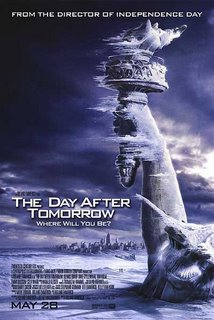 ...but who has other complex desires that may or may not be congruent with those star dreams...
...but who has other complex desires that may or may not be congruent with those star dreams... 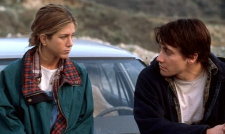 ...and who ultimately finds himself negotiating an unfortunate position somewhere between the two poles, really pleasing nobody...
...and who ultimately finds himself negotiating an unfortunate position somewhere between the two poles, really pleasing nobody... 
 Lesson Learned: the Wayans Brothers spot Talented White People.
Lesson Learned: the Wayans Brothers spot Talented White People.  If only their quality control applied across the board.
If only their quality control applied across the board.
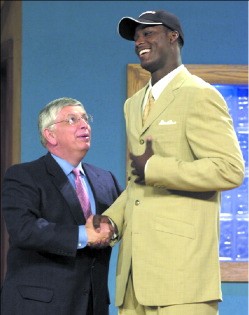

 My parents divorced when I was 5 . Since I was so young, and they were so present in my life, I never thought it had too much of an effect. I just kept right on putting one foot in front of the other. It was only after I went through my own first serious break up, which just happened to coincide with my dad's separation (and subsequent divorce) from my stepmother, that a lot of things started falling into place. Like how fast I fell in love with a girl I barely knew. Like how I had always harbored secret fantasies of marrying before I was 22 (that snort you hear is my parents laughing somewhere). And like how the freakiest part of my breakup was the gloomy inevitability when it actually happened--no shock, just a deep sigh of resignation and a whole lotta life goes on.
My parents divorced when I was 5 . Since I was so young, and they were so present in my life, I never thought it had too much of an effect. I just kept right on putting one foot in front of the other. It was only after I went through my own first serious break up, which just happened to coincide with my dad's separation (and subsequent divorce) from my stepmother, that a lot of things started falling into place. Like how fast I fell in love with a girl I barely knew. Like how I had always harbored secret fantasies of marrying before I was 22 (that snort you hear is my parents laughing somewhere). And like how the freakiest part of my breakup was the gloomy inevitability when it actually happened--no shock, just a deep sigh of resignation and a whole lotta life goes on. but I took in the miracle of this film two days ago and I can't let it sit but I can't figure out exactly how to crawl inside it either. Which is how I know it must be love. So here are my unfinished thoughts on The Squid and the Whale:
but I took in the miracle of this film two days ago and I can't let it sit but I can't figure out exactly how to crawl inside it either. Which is how I know it must be love. So here are my unfinished thoughts on The Squid and the Whale:


